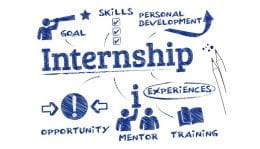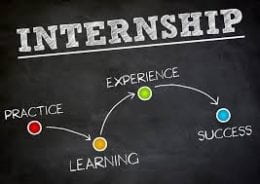Traveling home is an experience that one always looks forward to. Counting down the days till they can be back with friends, family and momentarily break from the stress that accompanies school life. There are many costs associated with traveling home and also ways to save money in the process. To explore this further I interviewed Jon Oury, a student at Kansas State University about his experiences traveling home.

[Chipo]
Where is home for you and how long does that journey take?
[Jon]
Home for me is Milwaukee, Wisconsin. If I’m driving it takes about 9 hrs. and then the flights vary depending on how many planes, I take but I’d say about 4 hrs.
[Chipo]
And what determines whether you fly or drive?
[Jon]
Well, I normally drive to school at the beginning of the semester. I drive back for the summer, spring break and Christmas break then fly back for Thanksgiving break.
[Chipo]
So, what would you say are the main costs that you incur like when you’re driving back home?
[Jon]
Gas for sure. If I’m driving, gas is very expensive. I try my best to spend as little money as I can on gas. The amount I end up spending really comes down to how fast I’m going. So, if I’m driving at relatively slow speed it takes me two and a half tanks of gas to get home and if I’m going a little faster, I’m taking three full tanks. Driving faster normally means I’m skimming an hour off my trip, so once I factor in the time I’ve left and what time I’d like to be home I have a rough idea of how much I’m going to be spending on gas.
I’m always on the look for Advantage Pricing opportunities to get me cheap gas.
[Chipo]
Tell me more about that?
[Jon]
Well one thing that I observed is that on one level gas prices differ from state to state and then on a deeper level they vary from city to city. So, Manhattan gas will be more expensive than gas you would find on the outskirts of Manhattan. So, considering that (within reason) while planning your trip can really save you money. What looks like a few cents difference probably adds up to about seven or eight bucks by the end of your trip.
[Chipo]
Are there any other costs you usually incur other than gas?
[Jon]
Yes, I’d say there are two other things I usually spend on. The first is snacks. Candy and or beef jerky and maybe an energy drink depending on how I’m feeling. Snacks just keep me energized and focused throughout the long trip. I think another cost that people often don’t factor in is maintenance. I feel like most people don’t factor that in but for me it is a big deal because the fact is I’m putting thousands of miles on my car and that depreciates the car’s value but also means my car is in the shop more often.
[Chipo]
So, in the instances when travel home by air, what are your main costs?
[Jon]
Well, the first thing that comes to mind is of course the air ticket. But after that I would say my biggest cost is parking. I never park at the airport because there are other options that can save you money. I park at a commercial parking garage right next to the Kansas City Airport – it’s called the parking spot. It’s right next to the airport and there’s a shuttle that will take you from the parking spot to the Airport. The nice thing about it is the consistent pricing. Oftentimes the pricing at the Kansas City Airport varies depending on the demand but I don’t have that issue at the parking spot.
I haven’t found a similar arrangement in Manhattan or Salina and that is one of the many reasons I try not to fly out of those airports. In the unlikely event that I have to fly out of the Manhattan and Salina airports I leave my car at my apartment and have a friend give me a ride.
One thing I wish we had was a school shuttle that would take students from school to the MHK airport. Maybe have it run for a certain number of hours in the few days after the last day of school when everybody is trying to get out of Manhattan.
[Chipo]
So, what’s the cost difference when you’re traveling during peak and non-peak seasons?
[Jon]
I’d say it’s a lot cheaper during off peak seasons. And during the holidays, it’s almost criminal how much they can charge you.
Normally, I would never consider a plane ticket over $700 but during peak season like Christmas time anything below $ 1, 000 for a flight is a good deal which is ridiculous. So, to deal with that I find myself taking a lot of connecting flights because you pay a lot for direct. At times it gets to the point where my plane travel takes just as long as it would if I was driving but I think it’s worth it because I get to save money.
[Chipo]
How do you deal with emergencies during travel?
[Jon]
It depends on the size of the emergency. I do have a bit of money in my savings that I could direct to smaller emergencies if they arise but with bigger things, like if the car breaks down, I get support from my parents.
[Chipo]
Any last-minute tips to save money that come to mind before we finish here?
[Jon]
Definitely carpooling. I think that would help save a lot of money and of course take turns driving home because the mileage can rack up if you keep using the same person’s car.
[Chipo]
Alright thanks for your time, Jon, enjoy the rest of your day.
[Jon]
You too
Chipo Sekabanja
Peer Financial Counselor l
Powercat Financial
www.k-state.edu/powercatfinancial





